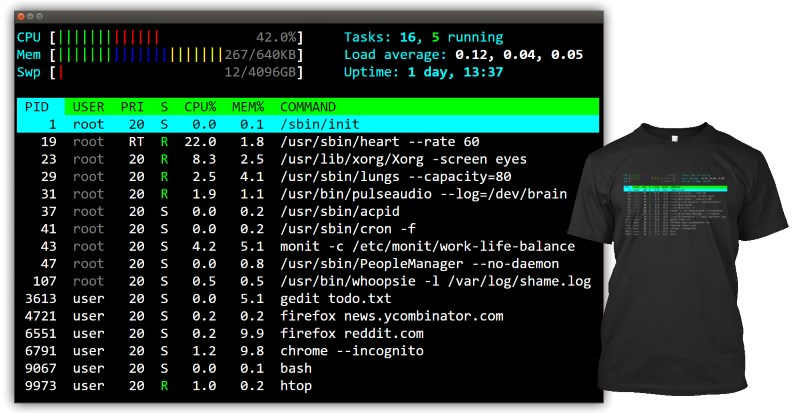131 private links
The Topgrade utility will upgrade everything in Linux and Unix operating systems. It is free, open source and written using Rust.
For the longest time I did not know what everything meant in htop.
I thought that load average 1.0 on my two core machine means that the CPU usage is at 50%. That's not quite right. And also, why does it say 1.0?
I decided to look everything up and document it here.
They also say that the best way to learn something is to try to teach it.

Linux offers a number of tools for examining your running processes. With the applications shown below, you can find out which applications are eating all your memory and which files are attached to those rogue programs. Or you can just get a global view of how your system is performing.
Regardless of your specific level of interest, this tutorial will offer you a starting point on that journey.
- top
- iotop
- monit
- lsof
- ps_mem
Features:
- Cross-platform support for Linux and Mac
- Automation (so there's no need to remember to click "backup")
- Point-in-time recovery (or something close) so if you accidentally delete a file but don't notice until later, it's still recoverable
- Low cost
- Replicated data store for backup sets, so data exists in more than one place (i.e., not just backing up to a local USB drive)
- Encryption in case the backup files fall into the wrong hands
This guide explains how to move a running process from one terminal to another without closing it using Reptyr in Unix-like operating systems.
etckeeper is a collection of tools to let/etc be stored in a git, mercurial, bazaar or darcs repository. This lets you use git to review or revert changes that were made to /etc. Or even push the repository elsewhere for backups or cherry-picking configuration changes.
Well organized information about volumes in Docker.
